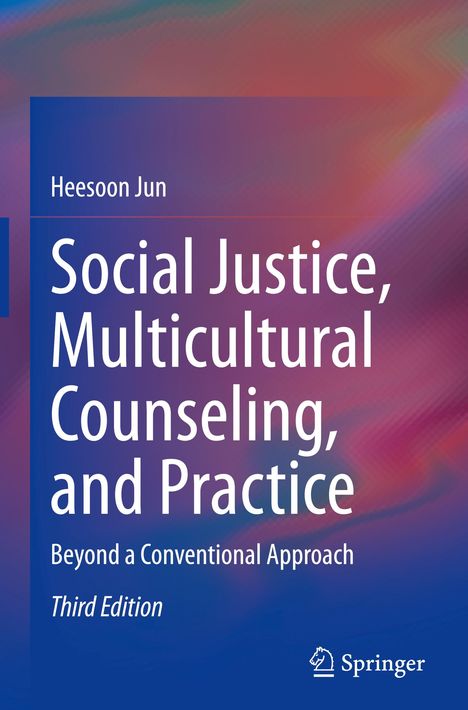Heesoon Jun: Social Justice, Multicultural Counseling, and Practice, Gebunden
Social Justice, Multicultural Counseling, and Practice
Buch
- Beyond a Conventional Approach
- Verlag:
- Springer Nature Switzerland, 03/2024
- Einband:
- Gebunden, HC runder Rücken kaschiert
- Sprache:
- Englisch
- ISBN-13:
- 9783031503603
- Artikelnummer:
- 11798145
- Umfang:
- 496 Seiten
- Nummer der Auflage:
- 24003
- Ausgabe:
- Third Edition 2024
- Gewicht:
- 904 g
- Maße:
- 241 x 160 mm
- Stärke:
- 33 mm
- Erscheinungstermin:
- 13.3.2024
- Hinweis
-
Achtung: Artikel ist nicht in deutscher Sprache!
Weitere Ausgaben von Social Justice, Multicultural Counseling, and Practice |
Preis |
|---|
Klappentext
This third edition book offers a paradigm shift in thinking (from binary to complex) and enables visibility for the intersectionality of multiple identities that range from privileged to oppressed. For example, real people s heterogeneous racial identities within the same racial group are visible. A paradigm shift in learning (from conceptual to transformative) connects conceptual learning (cognition) to their experience (affect). . transformation does not simply emerge due to the individual s awareness . but is experienced (Benetka & Joerchel, 2016, p. 22). Uncensored first-person (subjective) written responses to specific questions to access unconscious and implicit bias will connect the writer s experience to conceptual learning of diversity, equity, and inclusion. Writing in third person (objective) interrupts the transformative aspect by bypassing the accessibility of inner experience. Writing in first-person connects the writer to their experience which allows the unconscious to be accessed if it is practiced on a regular basis.This book is for everyone who wants to implement diversity, equity, and inclusion measures by learning to access their unconscious bias. Understanding social justice and equity and good intentions alone do not lead to accessing unconscious bias.


